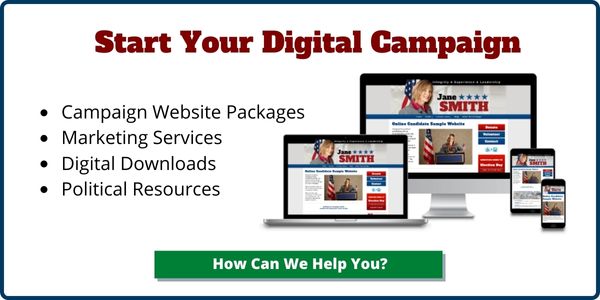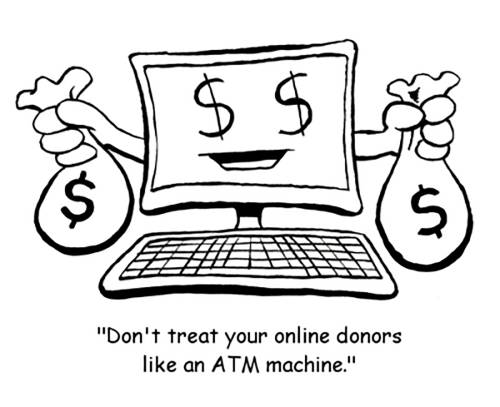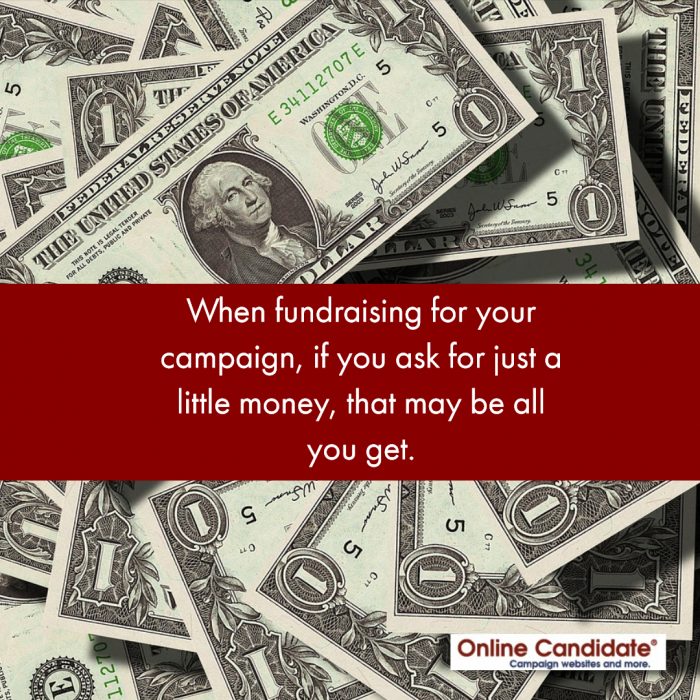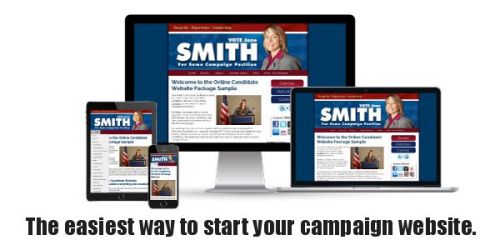Want To Run For City Council? Here’s How To Get Started
A city council is a group of elected officials who serve as a city’s legislative body. It’s a popular position for first-time political candidates. So, if you run for a seat, you will likely face opposition.
For example, in 2021, over 300 candidates ran for New York City Council throughout the five boroughs. That is a lot of people running for just 51 elected positions.
Council members—also known as a city council or board of aldermen—are tasked with representing the interests of their constituents. The official titles vary. They may be called council member, alderman, selectman, trustee, freeholder or commissioner. In Chicago, for example, the city government consists of 50 aldermen elected from 50 wards.
Councilpersons are those who have been elected by their community to be a representative. They help people in their community with services and issues that may arise. One of the most important jobs of a council is to work closely with the administration of their city. They do this by dealing with local issues such as zoning, public transit, parks and recreation, public safety, and other issues relevant to their community.
Depending on local and state laws, a city council’s duties may include:
- Approving city budgets
- Proposing public and business laws and ordinances
- Passing and ratifying local laws and ordinances
- Updating the municipal charter
- Responding to constituent needs
- Regulating health and safety issues
- Investigating agencies, when necessary
- Serving as a check against the mayor
Most council members, including the mayor, are directly elected by voters in a city, district or parish. When running a city or town council campaign, there are things you need to know about eligibility, the issues, fundraising and establishing an effective team.
How to run a campaign for city council:
- Why you should consider running for city council?
- Check your eligibility to run
- Can you keep an existing elected position?
- How much money will you need raise?
- Increase your local popularity
- Find your endorsements
- Attend events and government meetings
- Create a campaign committee
- Register as a candidate
Why should you run for city council?
The role of a city councilperson is to provide leadership and support for their community. They work closely with the city’s administration. In most cases, they mainly deal with local issues such as zoning, public transit, parks and recreation, and public safety.
You do not have to be an expert in any specific field but you need to have a clear understanding of what each department does and how it impacts the community that they represent.
Have a clear goal before running for office. What are some of the challenges facing your town or city? What solutions would you provide to these problems? What makes you better than the other candidates?
You will find that there are many important community issues. Find out which solutions are being proposed to address them, and then figure out your own positions.
Analyze the demographics of the area, including the numbers, age ranges, household income and more. What are the dominant constituent groups? What are their needs and demands? When you understand the issues, your district, and your constituents, you can use that information to develop an election platform.
With this information, you can start to create an election strategy. This will include coming up with an overall theme and slogan to let voters know who you are and why you are running.
First, check your eligibility to run
Running for political office is not an easy thing to do. Many potential candidates have no idea how to get on city council. There are many steps that need to be taken, and it’s not always easy to figure out where to start.
Your local government sets the required qualifications for council positions. They vary across different areas so it’s best to be fully up-to-date on your local requirements before filing.
Council members typically serve four-year terms, though two-year terms are common in smaller municipalities. The length and number of terms that a member can serve can vary. In Los Angeles, members are elected for a four-year time period, for a maximum of three terms. In Dallas, the term for the council members is 2 years and they may serve up to 4 terms.
“When I grew up, and I think about City Council, I look at the men and women then – these were people who just wanted to be a part of the community and give something back. They weren’t necessarily trying to use it as a steppingstone to something else. I looked up to those people.” — Brad Wenstrup
Common requirements for locally elected officials:
- Age requirements. Generally, to be elected to office in a large US city, a person needs to be at least 18 years of age. This includes even large cities like New York City.
- Residency requirements. Most US cities require that candidates for public office reside in the district or parish where they are running. Candidates must also be registered to vote in the municipality where they campaign.
- Are there conflicts of interest? Cities may restrict your eligibility to run if you do regular business with them. For example, if you are a person who commonly petitions for city contracts or permits, you may not qualify to run.
How to begin your campaign
Your county elections board or city clerk can provide the requirements and rules for your election before you run.
Filling out proper paperwork is an important part of the process. You will need to make sure to have registration forms and any other relevant documentation you think might be necessary, just to be safe. Personal details such as name, age, education and work experience, residence and your financial interests must be provided.
There will be deadlines for submitting your documents. Filing fees may also be required. It is at this time that many local candidates launch their campaign website.
Can you keep your existing elected position?
Some cities require the candidates to resign from their existing elected position if they plan to serve in a local council. This is called “resign to law”. Five states currently have resign-to-run laws—Arizona, Florida, Georgia, Hawaii, and Texas. If you fall under this law, you will need to leave your current job before you can run for another office.
“A few years ago, the city council of Monza, Italy, barred pet owners from keeping goldfish in curved bowls … saying that it is cruel to keep a fish in a bowl with curved sides because, gazing out, the fish would have a distorted view of reality. But how do we know we have the true, undistorted picture of reality?” — Stephen Hawking

What will your city council campaign cost?
Campaigning for a local election can be a lot of work. This is especially true when you’re running for a village city council position. A candidate for this type of position may only need to raise a few thousand dollars and some door-to-door canvassing to gain the votes needed to win.
However, a large city race will require considerably more resources.
- Calculate the amount needed for your election before you begin fundraising. Election costs vary depending on the size of the city and competitiveness of the seat. The state board of elections provide financial disclosures, but it’s also wise to check the FEC records for estimations if you live in a large city.
- Many factors can affect the overall cost of a campaign. For example, if you are running against an entrenched incumbent, then you will likely need a bigger budget. Research the amount raised and spent by other candidates in the last few elections.
You can identify trends in election spending by looking back at the past and then put that intelligence into your own budget.
Increase your local popularity
Good messaging bonds you with voters. But to really build a following, don’t underestimate the power of raw popularity.
Many people will vote for a popular individual. We often see this in governor elections, where celebrities with no political experience sweep into office.
- Increase your popularity can be tough, especially if you are not extremely outgoing. Get in the know of local events by attending or doing research.
- Becoming an active community member can lead to leadership opportunities, especially if you take the time to attend council meetings.
- When meeting community leaders, try to meet them outside of the traditional setting of governmental meetings.
- Having elected officials and community leaders on your side will help you get endorsements and connections with other people who can support your campaign.
When you are running for a political office, start your outreach process early. Being known as a candidate makes people react differently. They will see you as someone running for office instead of just another person.
As the campaign progresses you should erect signage and other public displays that will increase your visibility to voters. Go door-to-door to reach out to people in different neighborhoods and offer a personal contact through canvassing. Online marketing is a great way to expand your reach.
“I enjoyed the administrative work because it involved working with Congress, city council, and the mayor. I had never been a politician so it was fun – learning political maneuvering.” – Harold H. Greene
Securing endorsements
Getting endorsed by politicians, political parties and other authorities can help establish trust with a good segment of the electorate. Organizations don’t seek out candidates to endorse, so you should be proactive when looking for endorsements. This is especially important for first-time candidates.
Most organizations require candidates to complete a questionnaire before they can be endorsed. It is not uncommon for these questionnaires to ask about the candidate’s policies and how those will benefit the organization or their objectives.

Reach out to organizations who might endorse you as a candidate.
Newspapers endorsements from the editorial board can be very helpful. Getting such endorsements can also help you get public support and influence voters.
Find additional endorsements from politicians, local parties, influential locals, local unions and community leaders. They can also raise your profile while making you more visible to the voting public.
Good endorsements will boost your fundraising and volunteer organizational abilities.
Attend events and board meetings
As an aspiring politician, it is crucial to attend events and local town and city board meetings. They will give you a platform to discuss issues with other politicians and let people know about your concerns.
Attending public meetings also gives you the benefit of meeting local representatives and developing an effective contact network.
Building contacts will be essential to your political career – now and in the future.
Connect with members of your community
Increase your influence with voters by having a meeting with the leaders of the community. This gives you an opportunity to discuss local issues that are important to them and also allow us to show some of our strengths as a candidate.
People like to be involved in the decision-making process. Give them an opportunity to participate and choose who they want as their representative.
Put together your political campaign committee
To run for office, you will need to form a campaign committee, appoint a treasurer, and open up an account with the bank. It is helpful if you can recruit others who have experience in how to run a campaign for city council.
A treasurer must be appointed before any spending, receiving of funds, or entering into agreements with other people. Technically, the candidate can act as their own treasurer, but this is not recommended.
Most cities require you to establish a committee before you declare your candidacy. Once established, your team will help in day-to-day operations.
Register as a candidate
You will need a required number of signatures to qualify to run for a council seat, and if you want to pass the election petition stage, you should start by collecting signatures.
The number of signatures required will vary depending on the population size and geography of your town or city. Your local municipal office can help specify the exact number of signatures you need. If you need help gathering signatures in a large city, you may want to hire canvassers or volunteers.
Once your petition has collected the required number of signatures, the next task is the candidate’s affidavit and fulfilling any other election requirements. There may also be filing fees.
If all goes well, you will find yourself on the ballot. Good luck!
“If the City Council wants to hold the police accountable, it has the subpoena power and oversight responsibility to do so. They don’t have the courage to do it.” — Sal Albanese

You’ll need to get enough signatures to get on the ballot.
Now that you have an idea what goes into launching a political campaign for council, now is the time to get started!
Featuring an affordable websites for campaigns, tools and marketing services, start your run with Online Candidate.
How Candidates Fundraise for Political Campaigns
Political candidates face many challenges. One of the first and largest obstacles to any race is raising enough money to become a viable candidate.
This article offers vital guidance for successful political campaign fundraising, including strategies like donations, loans, and self-financing, starting with support from friends and family, organizing fundraising events, and the importance of thanking your donors.
Overview:
- Donations, Loans, and Self-Financing
- Start with Friends and Family
- Hold Campaign Fundraising Events
- Make it Easy To Donate
- Use Online Channels for Communication and Outreach
- Start Fundraising Before You Even Announce
- Go Big with Big Donors
- Keep Building Your Prospect List
- Be Thankful To Your Donors
Donations, loans, and self-financing
Depending on your location and the local voting demographics, a political campaign can easily cost a several thousand dollars or more. If you live in a city, expenses may even reach millions of dollars. If you want to know how much you can expect to spend, research previous successful races for the office you seek. That will give you an idea of your total cost and your potential cost per voter.
Political candidates get funding for their primaries and general elections through a variety of methods. The three most common ways of raising money for a political campaign are: donations, loans, and self-financing.
Outside contributions are the most common source of donations. Tactics may include direct solicitation by mail, phone, text, or through online channels. Fieldwork by volunteers and donor events are also crucial.
For Congressional and state offices, the three main sources of financial aid are political action committees (PACs), large individual donors, and small donors. Some political campaigns are self-financed. This happens more in both local elections and in races where a candidate is independently wealthy.
The cost of elections seems to go up every cycle. If you are a first-time candidate running for a state or federal position, the expenses can be staggering. Even an election for town council, village board, school board, or mayor can be expensive. Judges and sheriff candidates don’t have it easy these days, either.
Most candidates don’t have a lot of money to pay for early expenses. Seed money donations are required to get things started, along with a campaign bank account. A financial team or treasurer is also needed to help track donations and expenditures.
Understand your financial restrictions. Campaign finance reports must disclose all funds raised and spent within a specific period . Know your filing deadlines. Reports must be submitted correctly and on time to avoid violations and fines that could harm your campaign.
Start with your friends and family
This is the most common way that candidates raise their initial seed money. Just making the ask can be tough, but if you want your campaign to raise money, you need to start with your most potential donors. This could be family members, colleagues, friends, or wealthy supporters. You can reach out directly or through mail. Tell your prospects why you are running, why you think you can win, and how their support can help.
Host fundraising events
Once they announce their candidacy for office, most candidates start with a “kick-off” fundraiser event.
The goal of a kick-off event is to collect money, begin to spread the word, and generate excitement. The event can be a sit-down dinner, an auction, a golf event, or almost anything else. To pay for that first event, use the initial funds you raised from friends and family. If you can get someone can donate a location and services, that’s even better.
If you have a more formal event, include a special place for VIPs and charge more for those tickets. The most common way of charging is through a fixed donation price per person.
Today, many politicians have taken to live streaming virtual events on Facebook and Instagram as a way to interact with voters and supporters. Creating an online event requires the same preparation as an offline event. You will want to have an event page on your website, social media notifications, email invitations, continual reminders, and a donation page ready to go.
Make it easy for contributors to donate
Political fundraising has evolved in the 21st century. Where mail-in donations by check were once the primary way of collecting contributions, today online donations are the norm. These days, supporters fully expect candidates and organizations to solicit and accept donations on the web. Those who stick with the old ‘mailers and envelopes’ will have a tough time keeping up with opponents who are more technologically savvy.
Accept online donations securely
It’s not very difficult to accept online donations. Your best place to set this up is through a secure website.
Many people will not donate money through a Facebook page or a Twitter link. But a campaign website provides a fixed place to send donors so they can learn more about the candidate and make contributions. Depending on your fundraising system, you can often create specific donation landing pages for different audiences and solicitations.
Just remember that your website exists as a conduit through which to raise money, not as a means unto itself.
Use online channels for communication and outreach
Having a good online presence, even a small one to start, tells potential donors that you are serious about winning the election. Political fundraisers can be promoted through a variety of online channels.

Political fundraising ideas:
- Use social media to raise awareness. You can start this process through your personal Facebook and Twitter contacts. Ask them to become the first followers of your campaign’s social media accounts. Use those channels to keep followers informed and to ask for money throughout the campaign. Advertising can help you reach more local voters and potential supporters.
- Use email extensively. Email can be one of your most effective digital channels. Start building your email list as soon as you can, starting with friends and relatives. Writing fundraising emails can be tricky, as you have to get the reader’s attention with an interesting subject line and compelling message. One strategy is to compare your positions to those of other organizations or individuals that people recognize and care about; this helps them understand the impact of their support.
- Peer-to-peer texting is increasing in popularity. It allows you to mobilize volunteers to directly recruit others to help a candidate, issue, or political party. P2P lets you form stronger relationships with donors, but it does require engagement throughout the campaign.
- Some campaigns use paid advertising to appear when voters are searching for candidate names or topics related to important issues. If you are running a local campaign, don’t expect to raise much money through pay-per-click ads.
- Even local campaigns are using IP target marketing to reach voters directly. They can use voter address data, donor data, and party affiliation data to match physical addresses to IP addresses. Then they can send digital ads directly to those households.
- Turn one-time donors into recurring supporters. Provide the opportunity for donors to give on a recurring basis through Election Day. This can help ensure that your organization has a steady source of income to continue working.
- Set up specific landing pages for your different online fundraising campaigns. Tailor each landing page to match the ‘ask’. In other words, don’t just send everyone to the same donation page. You will have a better conversion rate if your landing page matches what your site visitor expects. If your request is about a particular issue, the landing page should address that issue in some way. It should reinforce the reasons for giving.
- Tailor each landing page to match the ‘ask’. In other words, don’t just send everyone to the same donation page. You will have a better conversion rate if your landing page matches what your site visitor expects. If your donation request is about a particular issue, the landing page should address that issue in some way. It should reinforce the reasons for giving.
What political fundraising service should I use? There are a number of fundraising services that process political donations online. Many services have software tools that go beyond simple transactional processing and bank transfers. They may allow you to take donations directly through your Facebook page, provide landing page creation, and track the success of different fundraising channels. They even allow you to process donations directly at political fundraising events.
Start fundraising before you even announce
Crowdfunding is a process where individuals pool money and other resources online to fund projects. Crowdfunding can help you get a head start on your initial fundraising for local campaigns. It can help candidates who cannot afford to self-fund their own election campaign.
Raising donations through this method can work by starting with close acquaintances and family. If you can raise enough seed money through them, it can get you over that initial financial hurdle.
You can research who contributed to past candidates. For example, for state-level races, try followthemoney.org. The site claims that it has documented more than $100 billion in contributions. If you find like-minded donors, you could reach out to them to see if they might lend you support.
Crowdfunding sites set conditions for financial support. The process can help determine if you are viable as a candidate. You can determine what initial support exists and help secure initial financial pledges before establishing a formal campaign. It’s like a ‘conditional’ fundraising campaign before you formally declare your candidacy.
After you decide to run, you can continue to use your account throughout the general election.
Note that some positions, especially those of judicial candidates, may have limitations on when they can solicit money and even when they can start spending campaign funds.
Go big with big donors
A lot of small donations are great, but big donors pay the bills.
Don’t be afraid to ask for large donations, especially from those who have the means. If you ask for too little, you may shortchange yourself.
Your local party may be able to provide you with information on large contributors. These may be individuals, businesses, or organizations. Other candidates who have won elections for the position you seek or currently hold a similar elected position may be able to provide you with donor leads. The more information you have about potential “big” contributors, the better.
Personalize your request when you talk to potential donors in person, by letter, or by email.
Research donors before you approach them:
- What issues do they care about? How does your campaign address those issues?
- What other causes are they a part of? Do they relate to your organization?
- Do they have a history of giving? If so, at what level?
Always follow the rules. For example, under federal law, contributions over $200 to federal candidates, political action committees (PACs), or parties must be itemized and disclosed to the Federal Election Commission. There may be additional individual contribution limits that apply as well. If necessary, seek legal advice.
Keep building your prospect list
Along with your email list, your donor list will eventually become your most valuable asset.
Keep your donor information up to date with contributors, amounts, and other information as required by donor filing laws. Keep building your list with supplemental donor information. What issues are of importance to them? Do they prefer to donate by mail or online? How much influence do they have online or offline? Who else do they know or have relationships with that can help your candidacy?
Grow your email list for political fundraising prospects
Get people to sign up for your email updates through your website and social media accounts. Include sign-up forms at every event and rally to capture emails offline. (Don’t forget to mention that your campaign will be in touch with them if they provide an address.)
These methods will allow you to build a list of donors that you can tap into for online political fundraising throughout the election.
With that list in hand for your next campaign, you will already have a head start. These will be the first people you invite to the next big political campaign fundraiser.
Be thankful to your donors
Always follow up with some sort of acknowledgement. A personal note makes a great impression on a donor. It will increase the likelihood that they will give again.
A successful campaign for office takes a lot of work. In a competitive local election, every vote counts. Raising money is just part of the process. Be prepared to devote hours to fundraising calls and even more time at fundraising events. We hope this help you put together a solid plan that will help you get started.
Related:
Getting ready to run for office? A political campaign website from Online Candidate is affordable for any size campaign.
5 Ways To Connect With Voters Online
It may be the dog days of summer, but political candidates should make sure they are staying on top of their campaign activities and making themselves visible to the public.
If you’re planning an election that’s still months away, there are a variety of tasks to do, from creating campaign material to scheduling events.
Here are five things you can do right now to connect with voters – without even going outside.
Engage through social media
People are home and spending more time engaged online. To reach them, it’s important to have an active social media presence. Your posts don’t all have to be political. Provide information from your local and state government, along with relevant local news. Share human interest stories about those in your area that are making a difference. Be a leader and show that you, too, are effected by what is going on in the wider community.
Related: Facebook Political Ad Authorization – What You Need To Know
Enhance your email outreach
Use this time to grow your email list. Encourage people to sign up through your website and social media accounts. The sooner you can start growing your own email list, the better. There are many email marketing vendors that allow you to create and send emails to subscribers for free. As you grow your email list, you will find that it will become your campaign’s most valuable asset.
Get into the routine of sending emails a few times a week, sharing relevant updates and information that you might use for social media updates. You can increase this amount as you get closer to Election Day.
Related: Top Tips for Your Political Email Marketing
Hold a Facebook Live event, anywhere and anytime
Facebook Live a live video streaming service. It lets anyone broadcast from their cell phones straight to their Facebook News Feed. Doing a live video requires a good Internet connection and the ability to speak well into a camera. Viewers can leave reactions and comments while you are streaming. You can respond to them in real time. Themes for Facebook Live events include: ‘Virtual Town Hall’, ‘Lunch with the Candidate’, ‘Virtual Walks’, ‘Ask Me Anything’ – anything you can think of.
When you are finished, you can embed your videos into your campaign website.
Related: Using Facebook Live for Your Political Campaign

Host virtual fundraisers
A virtual fundraiser is an online fundraising event. It can help compensate for the lack of real-world fundraising events. For example, you can combine fundraising with a virtual “Lunch with the Candidate” event for a closed audience. In many ways, planning a virtual fundraiser is like planning any other event. Establish your goals, organize your team, make a budget and plan the event itself. It doesn’t all have to be you. You can have guests, even entertainment.
Want people to show up? It’s critical to promote your virtual events and fundraisers. Engage your social media contacts and use your email list to reach out with reminders. Paid advertising on Facebook can also help spread the word. If you have street addresses, you can even use IP Targeting to reach voter households.
Engage in peer-to-peer messaging
Peer-to-peer messaging (or person-to-person or P2P messaging) is when two or more people communicate over text messaging. Peer-to-peer fundraising can exponentially increase your organization’s reach. It allows volunteers to manage hundreds of text message conversations with your contacts. Messages to your contact list come from volunteers, so recipients are more likely to take action. Texting is a great way to touch base with your supporters with relevant updates or information.
Combined, these online methods can help you form a cohesive strategy for effective remote outreach.
Here are additional services and resources to help your virtual campaign:
- Need your social media accounts set up? We offer Social Media Setup as an add-on service to our political website packages.
- By matching physical addresses to specific online IP addresses, IP Targeting becomes your way to directly reach voters.
- Check out our Running for Office Podcast Series.
6 Candidate Fails You Can Totally Avoid
There are many, many mistakes that candidates make during the course of a political campaign. It often has to do with something a candidate says or does in public.
Since we deal with the online aspects of campaigning, we’ll stick to mistakes that candidates make online.
In no particular order, these are the top mistakes that we see all too often.
Failure to keep it short
People just don’t have time to read through mountains of information. Just because you have unlimited space on the web does not mean that you should explain each position you take with dozens of pages and thousands of words. It’s highly unlikely that you are going to change a voter’s mind with a long, well-reasoned arguments. White papers are fine for downloads, but don’t make that material your primary content.
In your writing, eliminate most adjectives and get rid of as many adverbs as you can. Write in a plain style with short sentences. Split up your content into logical sections with sub-headings. Remember that writing for the web is different than writing for print.
Failure to keep the third person
We see this a lot. Candidates use their site’s home page as an open letter to voters. While this is a good concept, it can kill your website rankings. Using the the words ‘I’, ‘me and ‘my’ mean nothing to the search engines. If you want to rank for your name, then your name needs to be included in your site content.
Sometimes we’ll have a client who really wants to use first person copy on their home page. To compensate for this, we often use ‘pull boxes’ that include the candidate’s name. Combined with a good page title, page description and image tags, we can often work around the first person copy limitations.

Failure to use online fundraising effectively
Okay, we are now two decades into the twenty-first century. Even the smallest campaigns have the ability pull donations from online sources. If you have a campaign bank account and a website, there are many services that allow you to take online donations with minimal cost.
Fifteen years ago, the majority of our clients did not accept online donations. Most figured it was too much work for too little return. Back then, PayPal was a popular choice through which to take donations. While you can still use PayPal (and Online Candidate provides native integration for it), newer services designed for political fundraising provide tools to take donations from more sources like social media. Some can even let you collect recurring donations through Election Day.
Our advice to local campaigns is to start early, use your website to raise seed money, and use those initial funds to build momentum as the race heats up.
Failure to track traffic
The flip side to getting website traffic and online donations is tracking where it all comes from. One of the simplest and most popular web tracking solutions is Google Analytics. It’s a free service and just requires that a bit of tracking code be added to the pages of your website.
There is plenty of information provided with just the standard setup. You can see how many visitors your site gets, what pages they visit, how long they stay on your site and so on. With a little configuration, you can set up tracking for emails, pay-per-click advertising and even offline advertising if you happen to use targeted landing pages. Tracking your website traffic will help you determine what advertising channels are working best.
Online Candidate offers server log stats, but those numbers can be misleading. They tend to overstate visits by counting bots and non-human traffic. Google Analytics can be easily integrated into our websites. We also offer Site Launch service as a website addon option. This includes Google Analytics setup and a review of the site for best optimization practices to help it rank better for related searches.
Failure to forget anything can go viral online
Anything you post online – be it a post, video or document – has the ability to spread far beyond its intended audience.
Many candidates tend to forget that offline material can end up online as well. There have been many cases where a candidate ‘true’ thoughts were revealed in a private setting. All it takes is a single recording from a cell phone to make things public. One famous example of this is Mitt Romney’s “takers vs makers” comment at a private fundraiser. The secret recording made headlines, and Romney never fully recovered from his remarks.
Failure to launch
One local candidate that we knew didn’t make an official announcement that he was running for office until a week before Election Day. Why the wait? He didn’t want to ‘tip his hat’ too early.
Unfortunately, by keeping things under wraps for so long, hardly anyone knew about the candidate or his campaign in time to make a difference. Not only did he announce late, but there had been no preparation to do anything after the announcement. Once the announcement appeared in the local paper… there was nothing. No mailings, no volunteer efforts .
Needless to say, the candidate lost the election.
Starting early gives you time to build support and run a successful political campaign. It doesn’t mean that you have to announce early. Most successful campaigns spend a lot of time in preparation, long before they announce their campaign to the public.
Start early with social media to build awareness and anticipation. Use your website to gather email addresses, volunteers and early donations. By the time you are ready to announce and make your campaign official, you’ll be able to hit the ground running and build on the momentum you’ve already established.
As always, check your local board for office qualifications and any rules or laws pertaining to the timing of your preparation (such as fundraising) and when you can legally announce your campaign.
Related: 5 Online Mistakes Candidates Make When Running a Political Campaign
Check out or selection of campaign ebooks and guides designed to help you get the most out of your online campaigning.
Opening a Bank Account For Your Political Campaign
Raising money and managing expenses is an critical part of the election process. Opening a campaign bank account is a first step in establishing a viable political campaign.
A bank checking account serves several purposes. It allows you to accept political donations and contributions from supporters, and to make campaign purchases. To do all this, you will want to know how to open a bank account for a political campaign.
- Open your political campaign checking account as early as possible. Campaign finance laws in many states require that a campaign bank account be established in order to legally deposit political donations. The earlier you have an account, the sooner you can start raising seed money.
- Prior to opening a campaign bank account, you may need to establish a political campaign committee with your local county Board of Elections. The name you use for your campaign committee is the name you will use to open the bank account. The bank will require committee paperwork along with personal identification.
- Open an interest-free checking account rather than an interest-bearing savings account. Any interest earned on a campaign bank account must be reported in your finance reports. Considering how little banks pay in interest, the small amount of money to be gained is hardly worth the additional effort required by your committee treasurer to report.
- A candidate’s personal funds can be used for campaign purchases before a campaign bank account is established. Those purchases are generally treated as an in-kind donation or as a personal loan. Once the campaign is underway, the treasurer should handle the political funds and keep track of income and expenditures. For larger campaigns, it may be a good idea to hire an accountant.
- You should keep detailed records of every account transaction for financial filing requirements. Keep statements, records and receipts in a safe place. They should be held indefinitely in case questions later arise as to your campaign finances. Whatever you do, do not co-mingle funds between accounts.

So many rules… Local, state and federal…
These guidelines also apply for a political party bank account and political action committee bank accounts. If you accept donations or hold fundraisers, you will need a place to deposit your money. Most traditional banks, savings and loan association or credit unions can handle accounts for political campaigns and fundraising needs. You’ll want to check with them for eligibility first, of course.
- Large banks like Chase and Bank of America can certainly handle government banking needs.
- If you prefer a more personal touch, check with your local regional bank.
- Credit unions may also be able to handle election accounts, if that type of account is permitted by charter and policies.
Get FREE tips to build your digital presence.
EIN numbers for political campaigns
Federal campaigns and committees are required obtain an Employer Identification Number (EIN). This nine-digit number is issued by the IRS for identification purposes. (IRS Form SS-4) It is similar to EIN numbers assigned to businesses and corporations. This number is required to open a campaign bank account.
- A political organization must have an EIN, even if it does not have any actual employees.
- Don’t apply for an EIN until your organization is legally formed.
- Never open a political bank account in the name of an individual or with an individual’s Social Security Number. Use the organization’s EIN.
If you are starting a political action committee (PAC) and opening a checking account, the PAC must be first approved by the Federal Election Commission (FEC). Under these requirements, you will need an address for the PAC and a designated treasurer to handle the funds. There are additional compliance guidelines for any fund transfers that you make.
Frequently Asked Questions
Is a bank account needed for a political campaign?
A bank account is necessary for a political campaign, but it is not the only way to fund a campaign. A candidate can use personal funds, contributions from family and friends, or even donations from outside organizations.
Does a political candidate need to establish separate bank accounts for both the primary and general election?
This can depend on whether your contribution limits apply per election. For example, if the contribution limits are different then fundraising for the primary election and fundraising for the general election are separate. If this is the case, a candidate may need to establish separate bank accounts for each election.
Campaign banking information and requirements do vary. As always, be sure to follow your local election laws to the letter. Campaign accounts for state and local office are governed by state law.
With Online Candidate’s affordable Political Website Design Packages, you can start raising contributions today. Backed by easy-to-use tools and exclusive resources, we help hundreds of campaigns WIN every election cycle.
Local Political Campaigning During a Crisis [Infograph]
Here’s an infographic we created for political campaigns who have been put on hold during this crisis. Though gatherings and face-to-face meetings might not be possible, voters are spending more time online. Below are some tips for reaching them and gearing your messaging.
Feel free to repost and share!

Feel free to copy and share this image.
<a href=”https://www.onlinecandidate.com/articles/political-campaigning-during-crisis-infograph”><img src=”https://www.onlinecandidate.com/images/Campaigning-During-Crisis-Infographic.jpg” alt=”Political Campaigning During a Crisis” width=”800″ height=”4000″></a>
In case you were wondering, this infographic was made with Canva. See more political infographs on our Pinterest page.
These are uncharted times for down-ballot campaigns. The usual rules simply don’t apply. It’s more important than ever to deepen relationships and stay engaged. These new communication channels do have a learning curve.
Start early and build momentum to Election Day.











![Local Political Campaigning During a Crisis [Infograph]](https://onlinecandidate-792f.kxcdn.com/articles/wp-content/uploads/headerimg-400x250.jpg)


